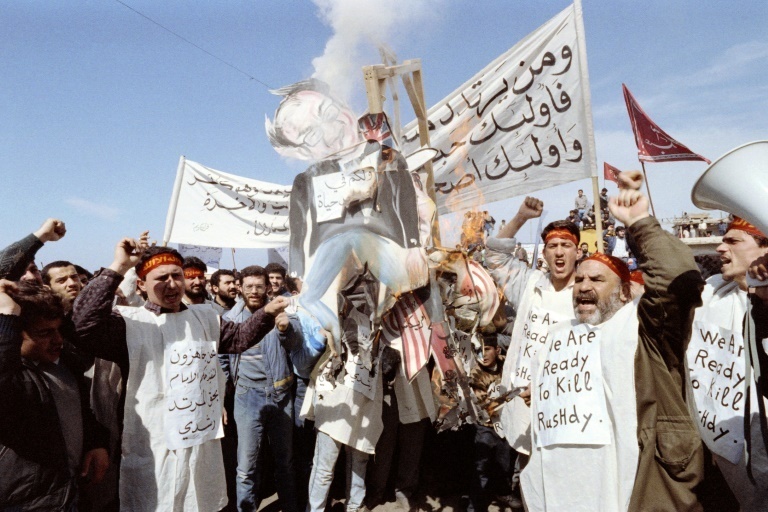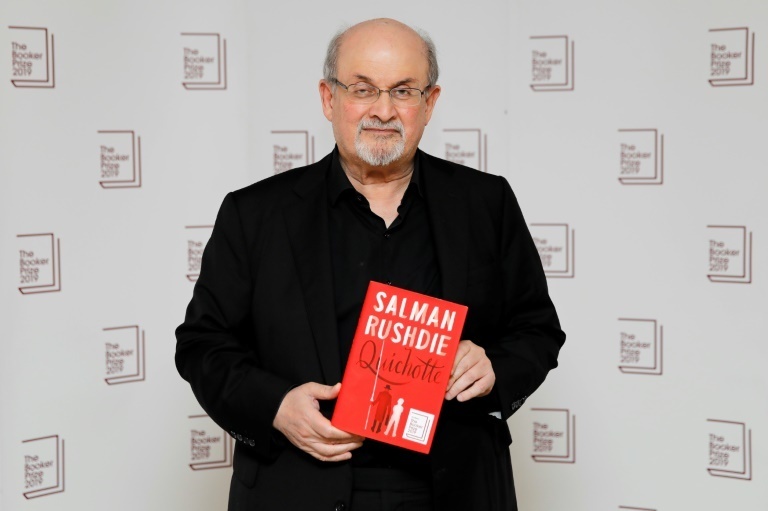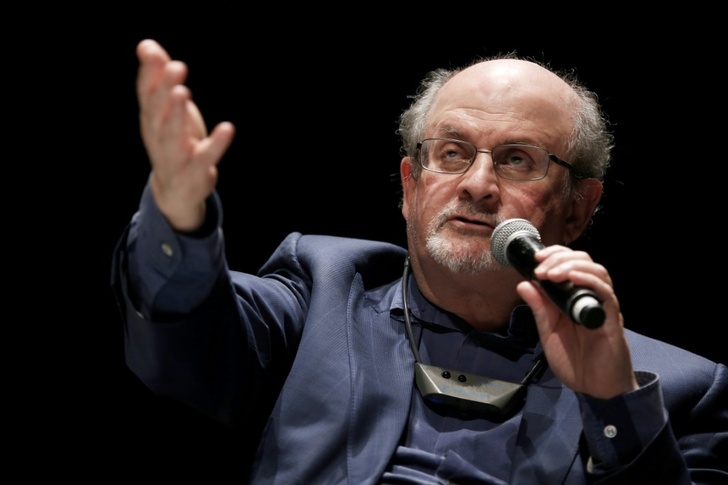British author Salman Rushdie, whose writings made him the target of Iranian death threats, was attacked and stabbed in the neck at a literary event on Friday in western New York state.
Police said in a statement that a male suspect stormed the stage and attacked Rushdie and an interviewer, with the writer suffering "an apparent stab wound to the neck."
He was taken by helicopter to a local hospital, police said, adding that "his condition is not yet known."
A state trooper assigned to the event at the Chautauqua Institution, where Rushdie was due to give a talk, took the suspect into custody, while the interviewer suffered an injury to the head.
Police gave no details about the suspect's identity or any probable motive.
Social media footage showed people rushing to Rushdie's aid and administrating emergency medical care.
"A most horrible event just happened (and) the amphitheater is evacuated," one witness said on social media.
The Chautauqua Institution -- which puts on arts and literary programming in a lakeside community some seventy miles (110 kilometers) south of Buffalo -- said in a statement that it was coordinating with law enforcement and emergency officials following the attack.
- A decade in hiding -
Rushdie, 75, was propelled into the spotlight with his second novel "Midnight's Children" in 1981, which won international praise and Britain's prestigious Booker Prize for its portrayal of post-independence India.

The novel was considered by some Muslims as disrespectful of the Prophet Mohammed.
Rushdie, who was born in India to non-practicing Muslims and today identifies as an atheist, was forced to go underground as a bounty was put on his head -- which remains today.
He was granted police protection by the government in Britain, where he was at school and where he made his home, following the murder or attempted murder of his translators and publishers.
He spent nearly a decade in hiding, moving houses repeatedly and being unable to tell his children where he lived.
Rushdie only began to emerge from his life on the run in the late 1990s after Iran in 1998 said it would not support his assassination.
Now living in New York, he is an advocate of freedom of speech, notably launching a strong defense of French satirical magazine Charlie Hebdo after its staff were gunned down by Islamists in Paris in 2015.
The magazine had published drawings of Mohammed that drew furious reactions from Muslims worldwide.

The fatwa failed to stifle Rushdie's writing and inspired his memoir "Joseph Anton," named after his alias while in hiding and written in the third person.
"Midnight's Children" -- which runs to more than 600 pages -- has been adapted for the stage and silver screen, and his books have been translated into more than 40 languages.
bur-mdo/bgs
© Agence France-Presse
Your content is great. However, if any of the content contained herein violates any rights of yours, including those of copyright, please contact us immediately by e-mail at media[@]kissrpr.com.
Source: Story.KISSPR.com

